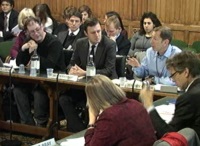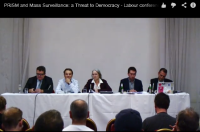Ed Miliband makes his speech; the autocue is here at Labour List. This speech more than most, one must read his words, everyone else will add their spin. So, here’s mine, by my reading, the key points for change are,
- Affiliation Memberships by Trade Unions are to be based on consent.
- A new code of conduct for candidates in internal elections and selections, (we have one now; so who’s fault is it that it isn’t good enough?)
- Limiting expenditure including gifts in kind and 3rd party expenditure internal elections and selections (Good idea, the devil’s in the detail).
- Regulation of CLP/TU teaming agreements (again an incremental reform; I’d like to see the evidence that the current agreements are being abused.)
- He proposes that MP’s should be prohibited from having second jobs, (Yes please, and include the Mayor of London in this proposal.)
- He proposes that unspecified measures should be taken to clean up lobbying and conflicts of interests in Parliament (Perhaps the Labour Party should expel the worst offenders, and include Peers in the list.)
- He proposes that Labour’s candidate for London Mayor is to be chosen by supporters, not members. (Why would we want the advice of people who won’t join?)
He also refers to the opening out of policy making since his election as Leader. This is delusional, moving policy initiation to a ‘bit bucket’ on the web is not extending policy making. …







